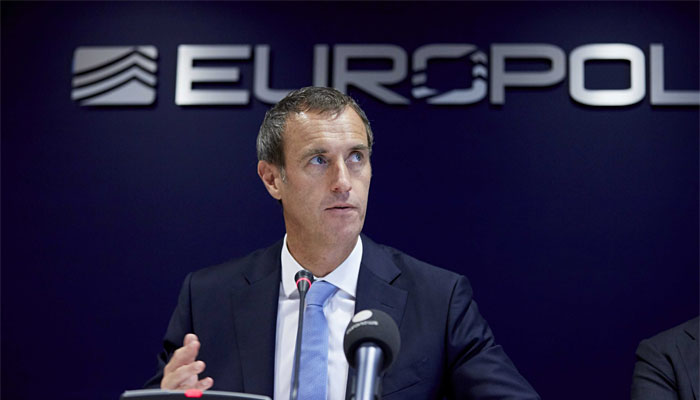Reuters/London
A Europe-wide police unit is to be set up next month with the aim of shutting down social media accounts used by key Islamic State (IS) militants to spread propaganda and recruit foreigners to their cause, Europol said on Monday.
The small police team will scour the internet and try to take down accounts of IS ringleaders within hours of being detected, in a bid to dent a propaganda machine which is reckoned to send out about 100,000 tweets a day.
"One of the major issues for us is the number, the scale of this - we're talking about tens of thousands of user accounts that are operating in this space," said Rob Wainwright, Director of Europol, the Hague-based police agency which will coordinate the unit.
"What we are observing online, we will combine with the intelligence we have from more traditional sources to try to identify out of all those user accounts who are the key drivers ... so we can take a more strategic impact to take down those that really matter," he told Reuters by telephone.
Up to 5,000 people from Western Europe are thought to have travelled to Syria and Iraq, many to join Islamic State, causing widespread concern among European states that their citizens could return radicalised and ready to carry out attacks at home.
Two British cases have highlighted its allure in the last week: a 17-year-old from northern England became Britain's youngest suicide bomber in an IS attack in Iraq, while three sisters abandoned their husbands and are believed to have taken their nine children to join the militants in Syria.
Europol has no powers of its own to remove offending accounts and the new police unit, initially made up of about 10-20 officers from across Europe, will work with unnamed social media companies to target prominent IS figures.
European leaders have accused social networking providers such as Twitter and Facebook of not doing enough to deal with those spreading messages promoting violence, but Wainwright said he was confident they would work closely with media firms.
Whilst it would still be for the companies to take action, he said the police team would provide a more systematic and intensive approach than had previously been the case.
"I would expect the majority, very close to all our referrals in the end to have a positive response," he said.
A report by U.S think-tank the Brookings Institution estimated in March there were at least 46,000 Twitter accounts supporting IS and possibly as many as 90,000.
Wainwright said there were far too many internet profiles to make it possible to remove them all, and that IS was adept enough to reproduce the accounts almost immediately.
Peter Neumann, director of the London-based International Centre for the Study of Radicalisation and Political Violence, said the unit could only address one part of the problem.
"It's not only about reducing the supply of extremist material on the internet, it's also about increasing the amount of counter-extremist messages that directly challenge the extremist narrative," he told Reuters.
"You have to accept that you will never be able to take everything down."

Rob Wainwright
